Many B2B firms that have achieved significant year-over-year increases in market share have been deploying five key omnichannel sales strategies in concert, according to recent research from McKinsey.
The report was based on data from a survey conducted in December 2022, among more than 3,800 B2B customers and sellers in decision-making roles. As part of their analysis, the researchers looked at the differences in strategies between two groups: "winners" (companies that reported market share growth of 10% or more between 2021 and 2022) and "laggards" (companies that reported market share growth of 5% or less).
The researchers found that winners are significantly more likely than laggards to deploy five sales strategies:
- Adopting advanced sales tools
- Fully committing to hybrid sales teams
- Embracing hyperpersonalization
- Selling on third-party marketplaces
- Investing in owned marketplaces
Although companies that invest in those strategies individually tend to achieve increases in market share, those that do all five are twice as likely to see more than 10% market share growth than companies focusing on just one.
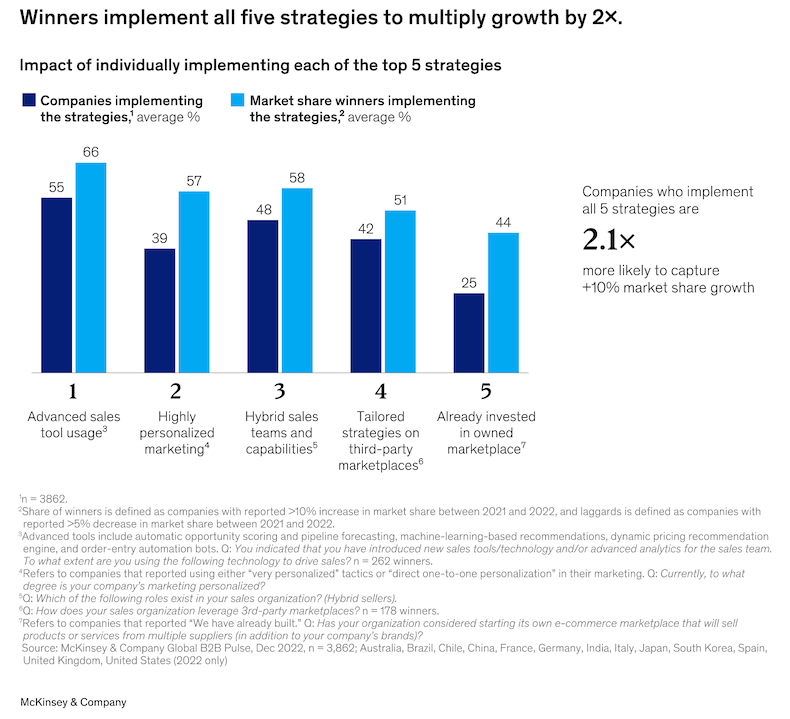
The researchers found that market share winners are 55% more likely than laggards to be planning to introduce cutting-edge sales tools such as automatic call logging with next-best actions.
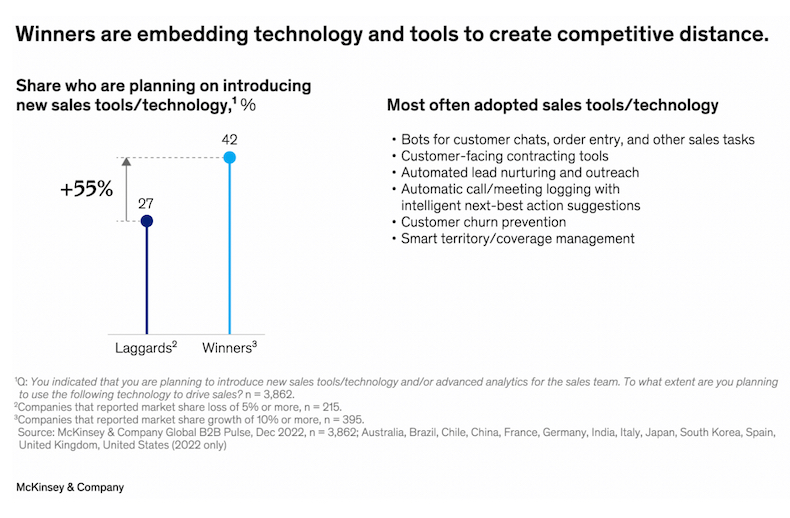
B2B companies that have increased the size of their hybrid sales teams by more than 10% are 79% more likely to be market share winners.
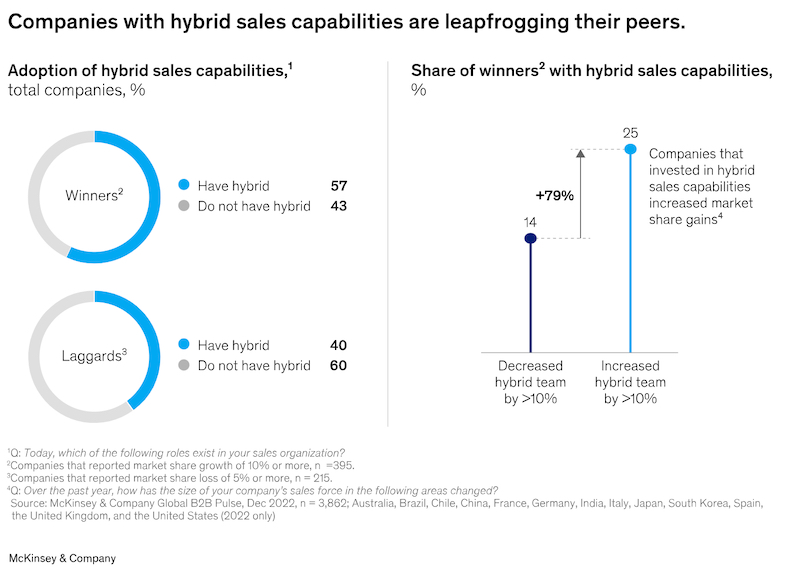
B2B companies that have adopted hyperpersonalization (tailoring based on multiple characteristics such as geography, vertical, role, etc.) are 84% more likely to be market share winners.
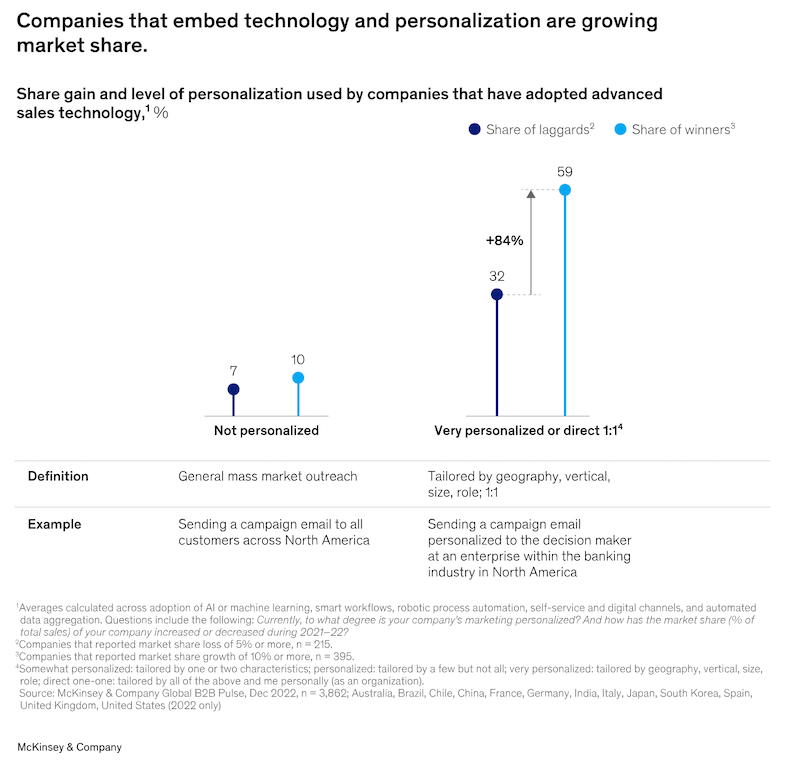
Some 40% of winners are selling their products online through a third-party marketplace, compared with 27% of share laggards, and 48% of winners are on industry-specific marketplaces, compared with only 13% of laggards.
Moreover, winners are 24 percentage points more likely to have built an owned marketplace compared with laggards.
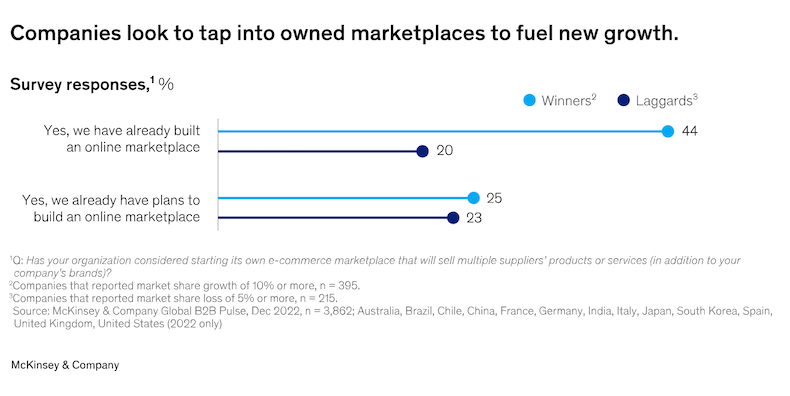
About the research: The report was based on data from a survey conducted in December 2022, among more than 3,800 B2B customers and sellers in decision-making roles.




